What is honey?
Honey, that golden elixir produced by bees, has been treasured for centuries for its natural sweetness and unique flavor.
Bees collect the nectar of flowering plants, regurgitate it, and allow water to evaporate, creating the delightful substance we know as honey.
The variation in color, aroma, texture, and taste stems from the different flowers the bees visit.
Honey is a sweet treat and a versatile and healthy sugar alternative. With no additives and an indefinite shelf-life, honey is a beloved staple in kitchens worldwide.
Honey is approximately 40% fructose, 30% glucose, and 17% water; the remainder is other sugars, carbohydrates, vitamins, and minerals.
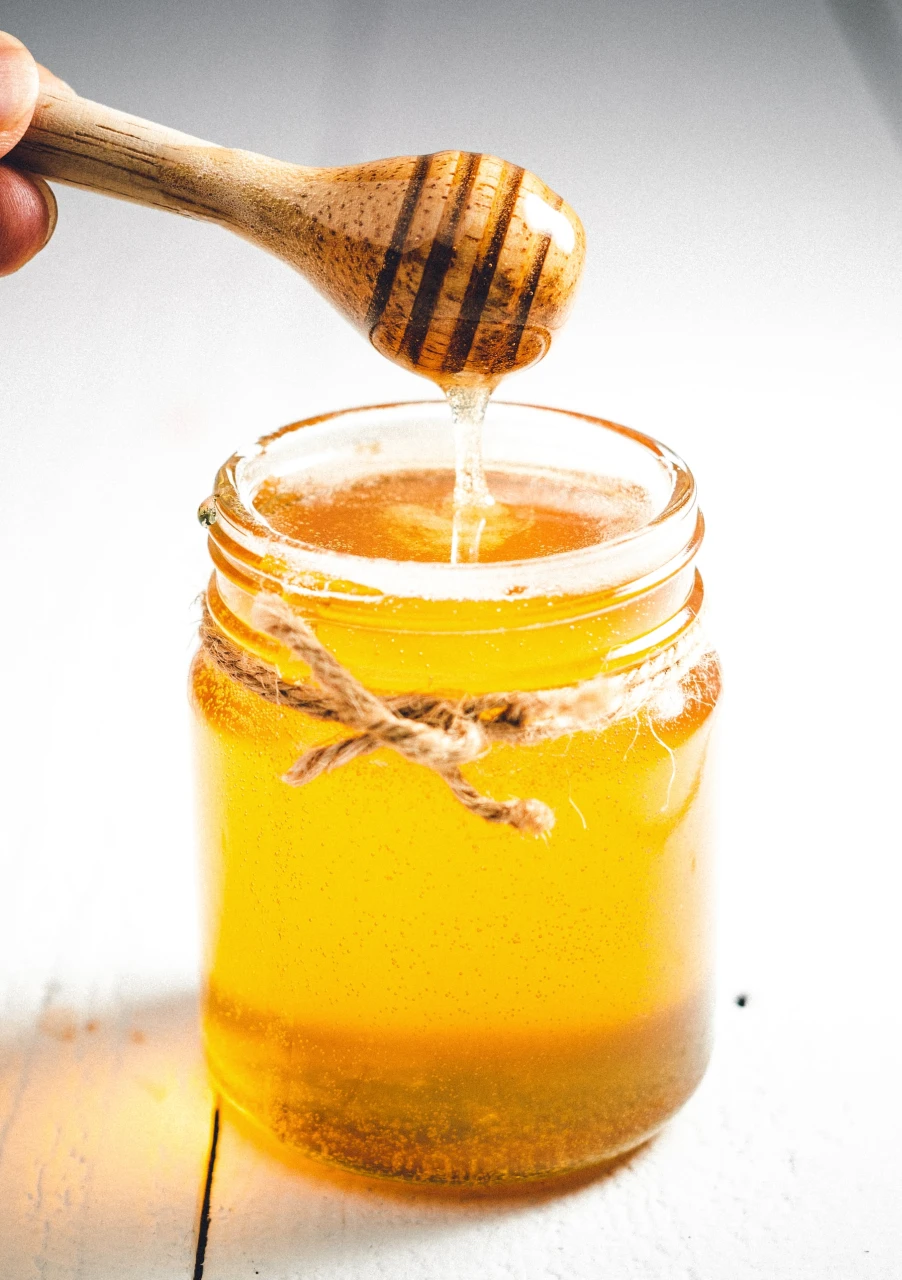
Honey types and flavors
The world of honey offers a delightful array of varieties, each with distinct characteristics.
There is a first classification by season: spring honey or summer honey, for sure weather and flowers haven’t the same taste!
Then comes the flower classification:
- All-flower honey comes from collecting nectar from various flowers,
- Mono-floral honey comes mainly from one dominant floral variety; honey is considered monofloral if it comes from the same variety at 80%.
From the delicate flavor of acacia honey to the robust taste of chestnut honey, there is a type to suit every palate.
The most common flavors are:
- acacia,
- hawthorn,
- thyme,
- lavender,
- chestnut,
- rosemary…
Honey can also be enjoyed in different forms, including liquid (raw or pasteurized), whipped, honeycomb, in candies, each providing a different experience.
Is there a honey aroma in cognac?
In the realm of cognac, the aroma of honey adds a touch of warmth and sweetness to the experience. The honey aroma can be found in cognacs like ABK6 VS cognac, D’USSÉ VSOP Cognac or Martell VS.
Honey, with its luscious sweetness and delicate floral notes, is among the elements that contribute to the intricate tapestry of scents.
The honey aroma in cognac can be detected by bringing the glass to your nose. It intertwines with other enticing scents, such as dried fruits, spices, and oak, creating a delightful olfactory symphony.
The presence of honey aroma in cognac enhances its richness and depth, offering a natural sweetness that complements the spirit’s complexity.
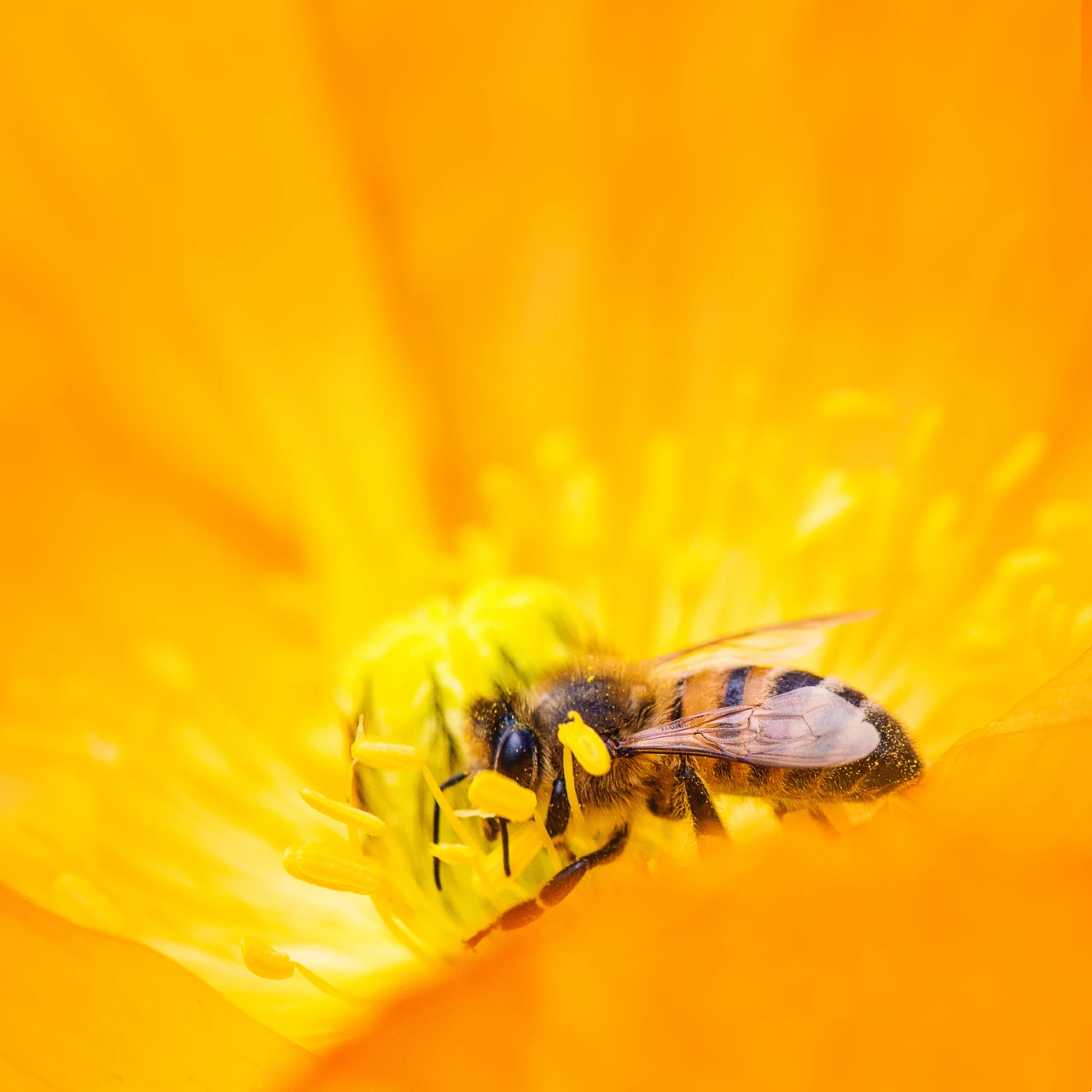
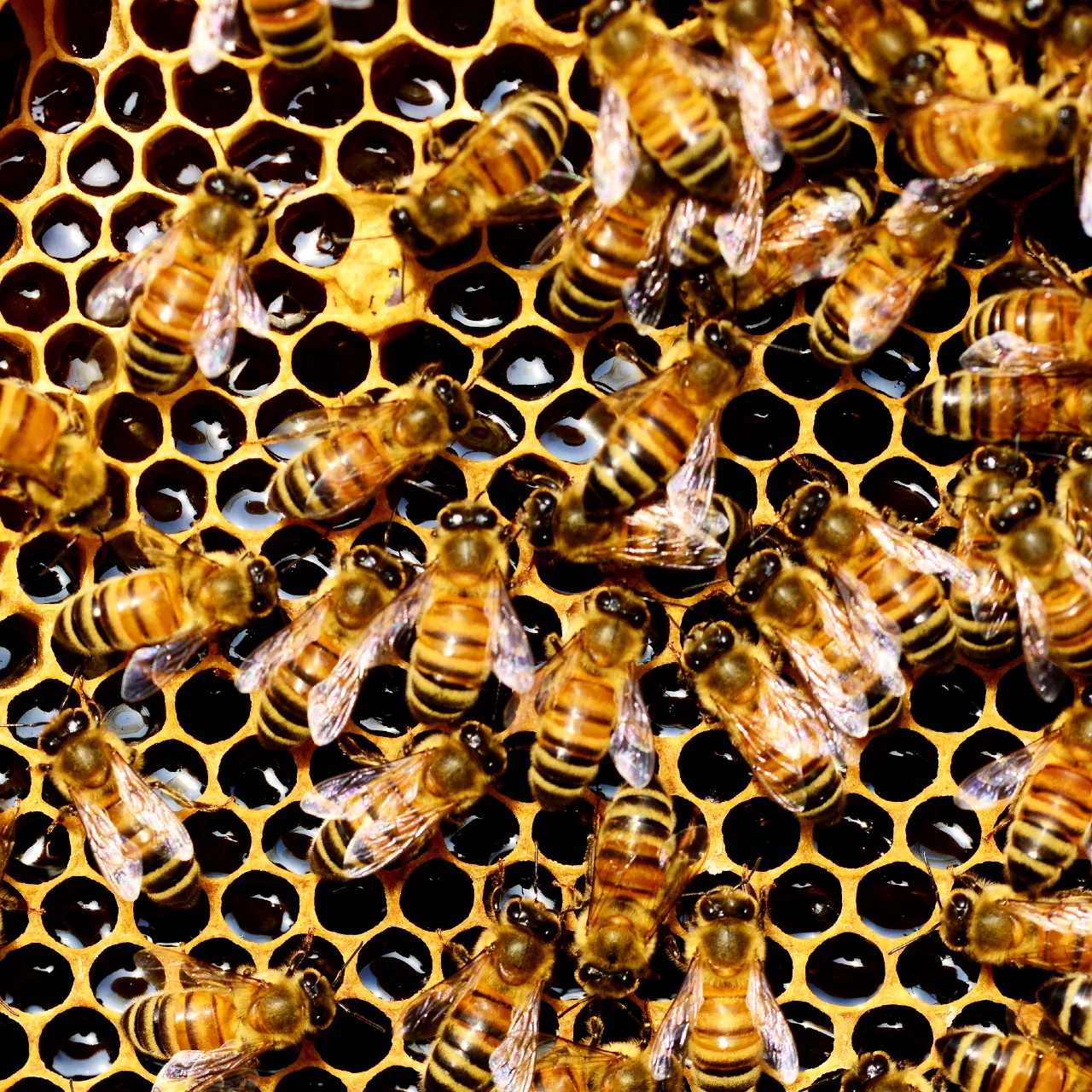
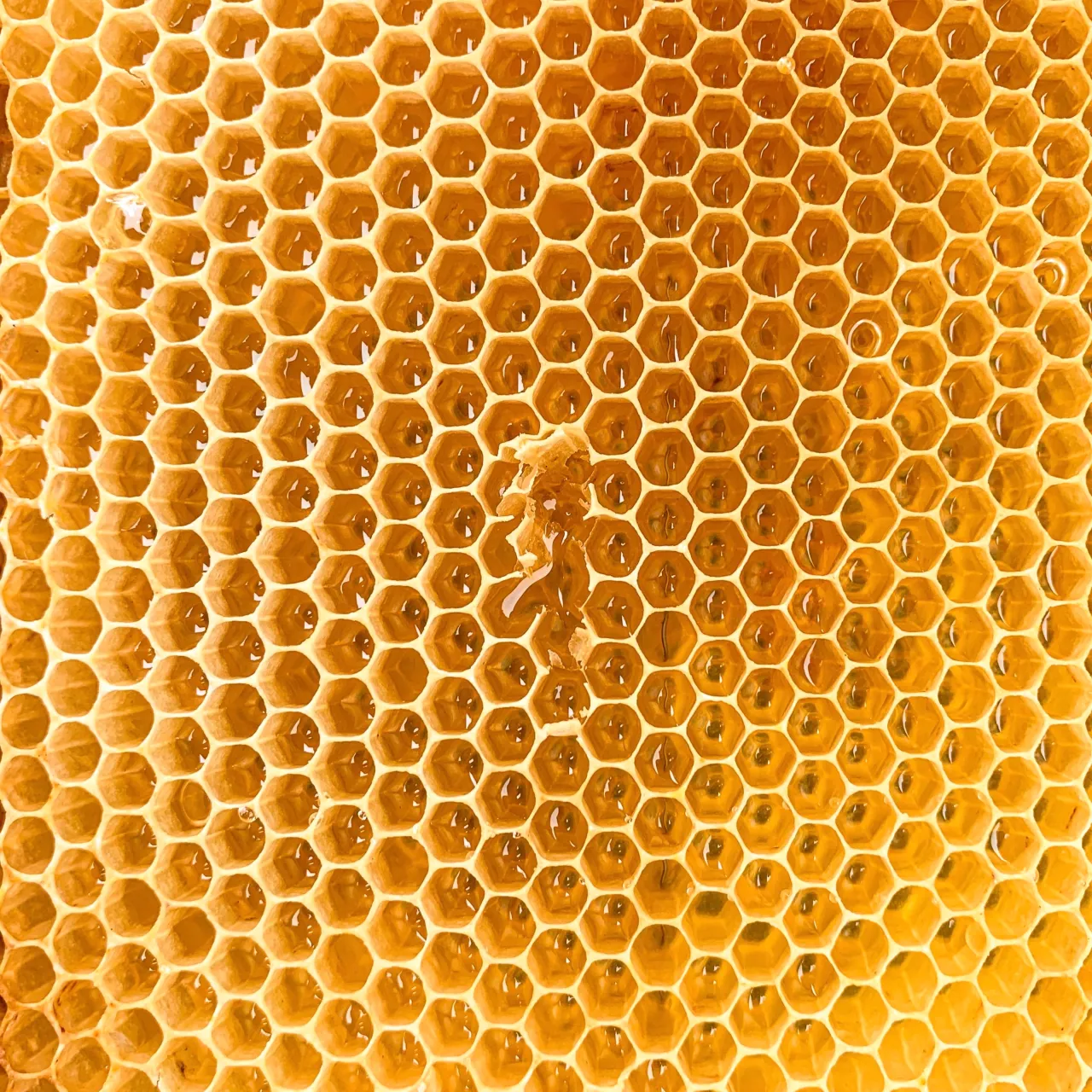
Which cocktails with honey?
In addition to its role in the aroma of cognac, honey is also a delightful ingredient in cognac cocktails.
One classic cocktail that features honey is the Honey Sour. This cocktail combines the rich flavors of cognac with the smooth sweetness of honey, resulting in a perfectly balanced and delightful libation.
To create this exquisite drink:
- Combine 2 ounces of cognac,
- ¾ ounce of lemon juice,
- and ½ ounce of honey syrup in a cocktail shaker filled with ice.
Shake vigorously and strain the mixture into a rocks glass filled with fresh ice. Garnish with a lemon twist or a drizzle of honey.
Another famous cognac cocktail that incorporates honey is the Gold Rush. The Gold Rush celebrates honey’s sweet and rich flavors, harmonizing beautifully with the depth and complexity of cognac :
- Mix 2 ounces of cognac,
- ¾ ounce of lemon juice,
- and ¾ ounce of honey syrup in a cocktail shaker filled with ice.
Shake vigorously until well-chilled, then strain the mixture into a chilled coupe or martini glass.
Honey in History
Honey has an illustrious history, dating back to ancient civilizations. It was mentioned in Sumerian and Babylonian cuneiform writings, the Hittite code, and the sacred texts of India and Egypt.
The English word “honey” derives from the Old English term “hunig”, highlighting its prominence as the first and most widely used sweetener in human history.
In fact, honey was highly valued and served as a form of currency, tribute, and offering.
German peasants even paid feudal lords with honey and beeswax in the 11th century A.D.
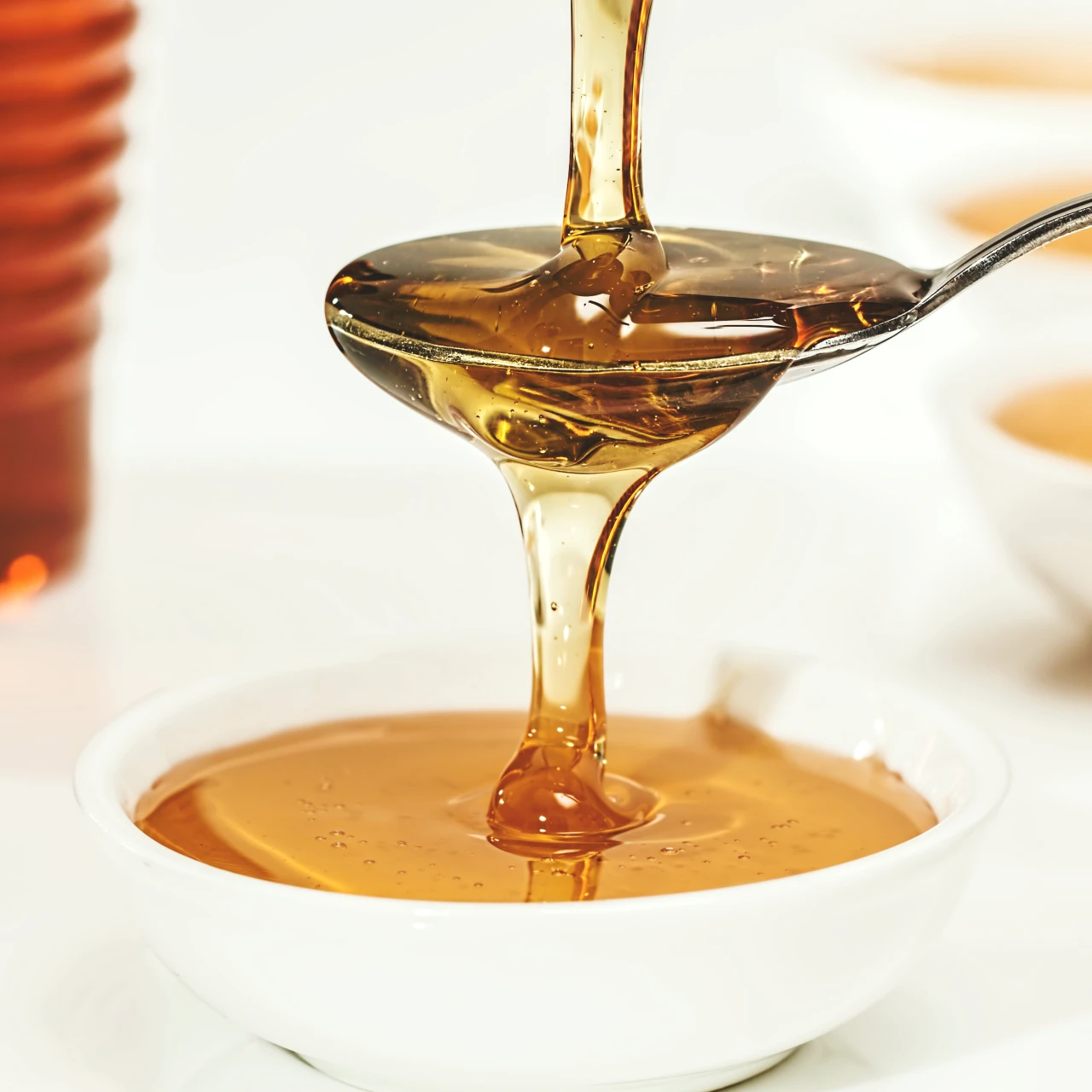
Honey benefits
Beyond its role as a natural sweetener, honey boasts an array of distinctive characteristics that make it a versatile ingredient in culinary delights and soothing beverages.
Thanks to its high concentration of sugars, its richness in diastases and aromatic essences, honey have a certain antiseptic power: effective in treating sore throats, it also opposes any intestinal fermentation.



